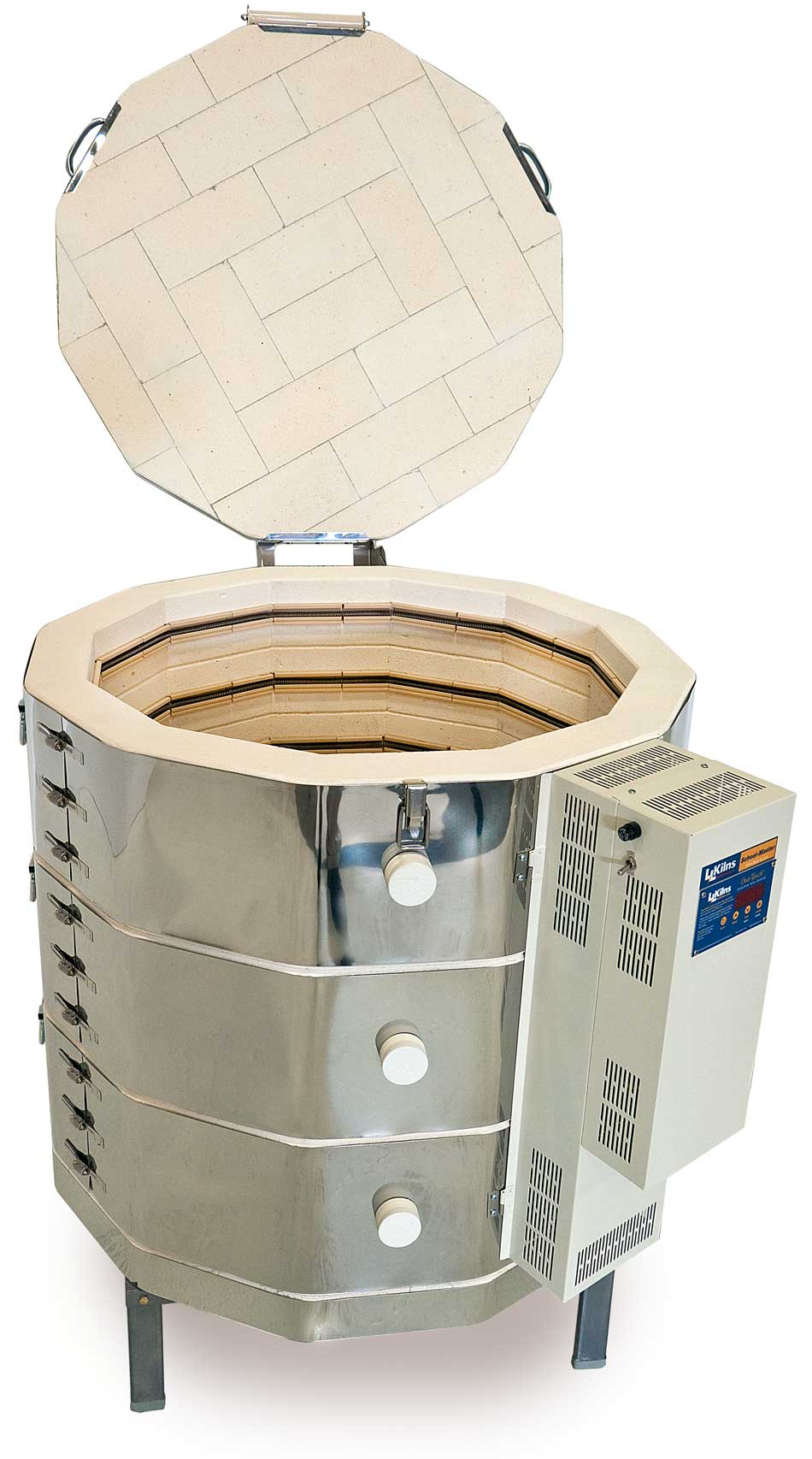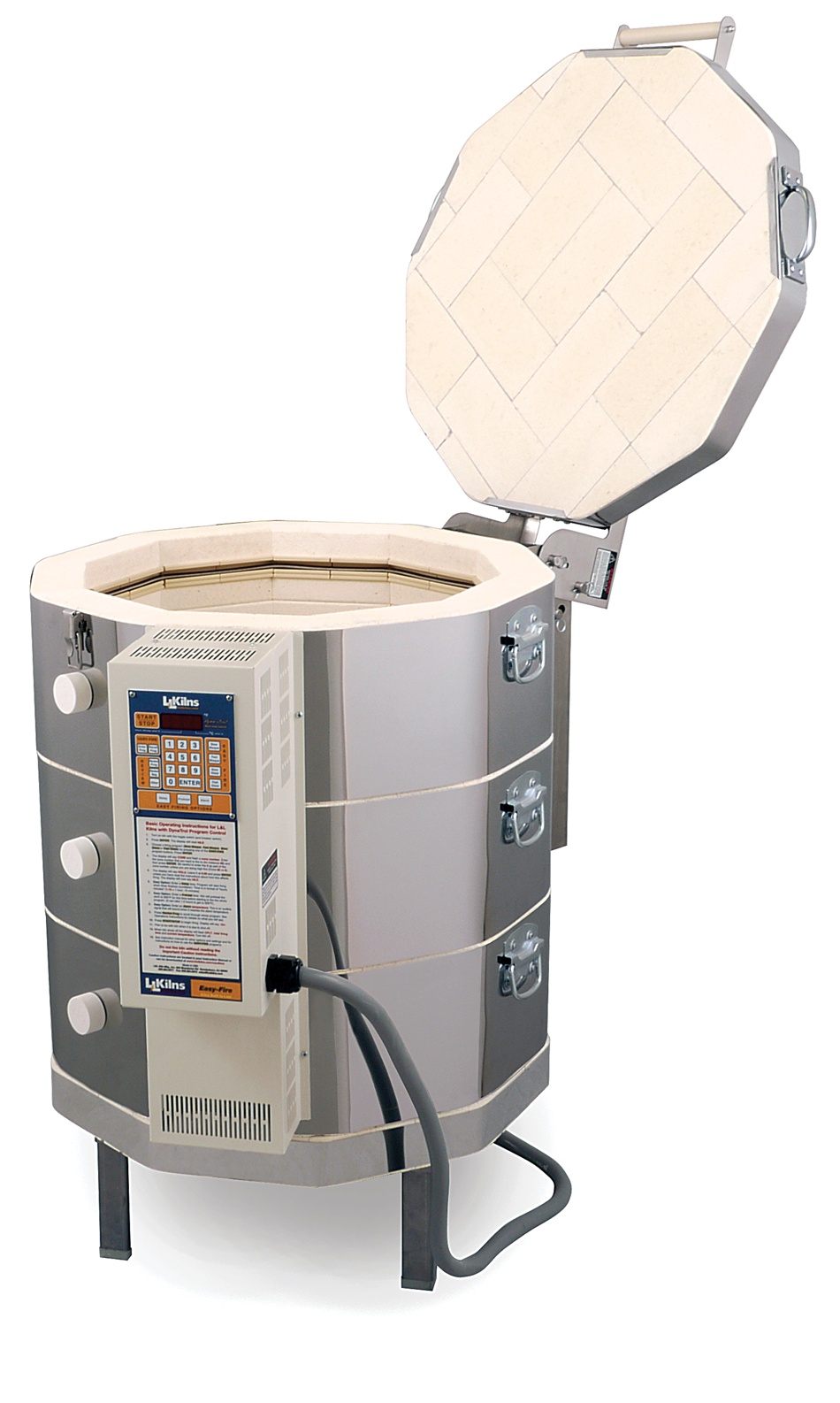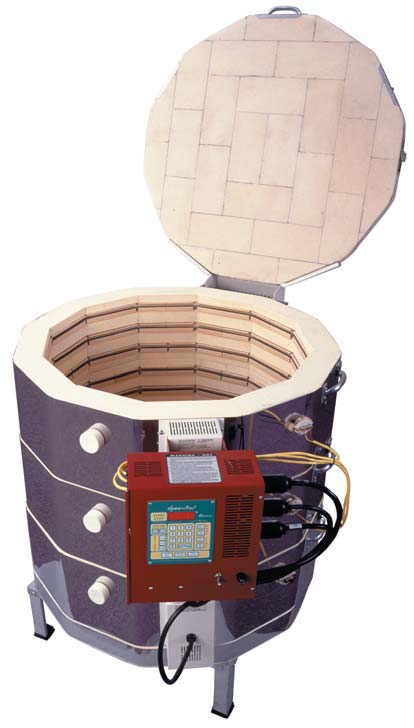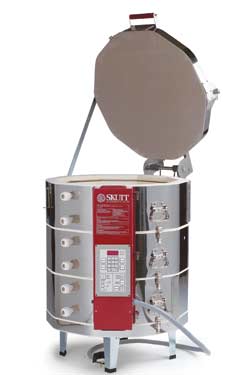Kiln
A furnace is a furnace of a high temperature generated in order to enable a material to be burned, a thermally activated material conversion. It is constructed in a variety of types and used in various fields.
A kiln is different from a furnace essentially in that it is not the generation of heat is the primary purpose of the furnace, but the targeted thermal treatment of combustible material, which is located in the furnace: the material to be " burned ". The combustion process itself is carried out continuously or discontinuously.
Application
Some application examples:
- For the manufacture of burnt lime, limestone
- For the production of cement
- For the production of Bauziegeln, bricks
- For the production of sand-lime bricks, pavers, tiles, etc.
- For the preparation of materials which in turn are used for the lining of furnaces ( chamotte lining )
- For the production of porcelain ( Rundofen ) in the porcelain industry, was replaced in the 20th century by the tunnel kiln
- For the production of ceramics, the pottery (burning of sound, " biscuit firing " )
- For the production of glazes ( glaze firing )
- For fusing glass fusing
- For the production of enamel
- For the production of charcoal in a kiln
- Waste treatment (waste treatment )
And many other applications.
A continuous combustion process is constantly maintained, the kiln passes through the furnace in a continuous flow. A rotary kiln burns according to this principle, for example, Cement. A discontinuous firing process requires for each fuel fill charge a furnace, heat up, cool down possibly maintenance of a defined firing temperature, and empty the combustion chamber.
During the fire, different atmospheres with reducing, neutral or oxidizing properties can be adjusted by the air factor that specifically affect the kiln. Also inertgashaltige, vacuum or hydrogen-containing atmospheres are utilized industrially.
In this respect, a kiln is also different from a melting furnace: a furnace that transfers a material without chemical transformation only in the liquid phase, from which, after cooling down, however, the original material. Here, a reversible change of state (casting ). However, kilns operate irreversible processes: their result can not be making any irreversible.










